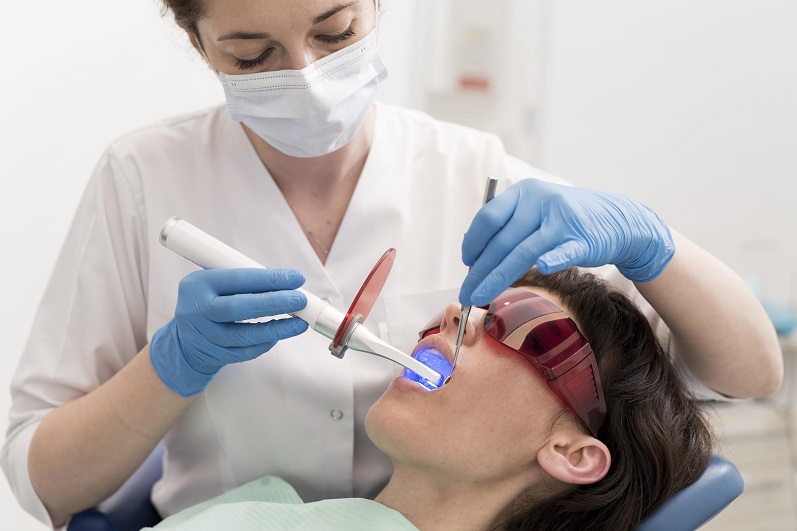A diagnosis of melanoma is shocking and an emotional experience. Melanoma is the most serious type of skin cancer, and though early detection dramatically improves outcomes, the initial stages after diagnosis often leave a patient wondering what to do next. Understanding the right steps — medically and emotionally — can make a big difference in one’s recovery and confidence. Facilities such as SCCQ provide the necessary guidance, support, and top dermatological services as patients embark on this journey. The following are ten practical, yet sensitive, tips that can help newly diagnosed melanoma patients move forward with clarity and hope.
1. Stay calm and search for accurate information
The word “melanoma” is one that can cause a lot of anxiety, but you shouldn’t jump to conclusions; instead, focus on the facts. There are numerous stages in melanoma, and not all of them require aggressive treatment. The first question any patient has to ask after a diagnosis is about the stage, type, and depth of the melanoma. Medical specialists at SCCQ support patients in taking notes, asking for reports, and understanding the diagnosis in detail before jumping to conclusions. Knowledge empowers you to make informed decisions regarding your care plan.
2. Choose the Right Healthcare Team
It is about choosing a well-seasoned team of dermatologists and oncologists. A skilled medical team can ensure you receive the best treatment for your condition. At SCCQ, patients benefit from a multidisciplinary approach where dermatologists, surgeons, and cancer specialists all come together for the best results. And if in doubt, get a second opinion — it’s your right to feel fully confident in your care.
3. Know Your Treatment Options
Treatment for melanoma depends on the thickness of the tumor, its spread, and other aspects concerning the individual’s health. Common treatments include surgical excision, immunotherapy, targeted therapy, and, in advanced cases, radiation. As stated by doctors at SCCQ, each treatment should be tailored to the individual case. Ask about possible side effects, recovery time, and long-term outcomes so you can make decisions based on your lifestyle and comfort.
4. Keep Up With Follow-Up Appointments
Follow-up visits after your initial treatment will be necessary to ensure that there is no recurrence or new lesions. Sometimes melanoma recurs or arises in another part of the body. In clinics like SCCQ, there are scheduled systematic examinations using dermatoscopic imaging and full-body scans to ensure no early signs of cancer are missed. Consistency is key: missing follow-up visits can delay detection at a critical stage.
5. Protect Your Skin from UV Exposure
The need for sun protection after being diagnosed with melanoma becomes paramount. Ultraviolet radiation exposure is one of the main factors that can promote skin cancer recurrence and progression. Apply a broad-spectrum sunscreen of at least SPF 30 daily — even when it’s cloudy outside. SCCQ experts suggest that when spending time in the sun, apply sunscreen every two hours, wear wide-brimmed hats, and avoid tanning beds altogether. Taking these basic precautions can help protect your skin from further damage.
6. Healthy Lifestyle
It goes without saying that a healthy diet combined with regular exercise and rest supports your immune system and recovery process. Fresh fruits, vegetables, lean proteins, and hydration can significantly enhance healing and resilience. Generally, wellness experts often recommend holistic habits at SCCQ in mindfulness, light yoga, or breathing exercises to manage stress that can affect immune health. Remember, with cancer recovery, mental and physical health are interconnected.
7. Regular Skin Check-ups
Self-examinations are one of the key habits for melanoma patients. Give your whole body a regular self-check to make sure you don’t miss anything, from your scalp to the soles and under the nails. Dermatologists with SCCQ recommend doing this once a month, noting new or changing moles, patches, or spots. If you find something suspicious, set up an appointment for a professional skin check immediately. This will help in catching any new developments early and avoiding further complications.
8. Emotional and Social Support
The diagnosis of melanoma can be an emotional burden that is just as distressing as the physical one. Fears and feelings can be shared with family, friends, or professional counselors. SCCQ provides an opportunity for patient support groups where patients can connect, share experiences, and learn coping strategies from others who have walked the same path. Emotional support counters social isolation, enabling patients to stay positive and resilient during treatment.
9. Learn About Prevention and Recurrence
Understanding the factors that cause melanoma recurrence puts patients in a position to take responsibility for their future health. Limit sun exposure to the greatest extent possible, follow through on periodic check-ups, and make lifestyle changes that reduce risk factors. The dermatologists at SCCQ inform patients about mole mapping and digital monitoring tools that can help detect changes in the skin early. Being proactive with your health helps prevent recurrences and builds long-term confidence in managing your condition.
10. Communicate Openly With Your Doctor
Good communication with your doctor ensures that all your needs and questions are addressed during the course of your treatment. If you notice any new symptoms, side effects, or anxiety, talk about them with your doctor right away and do not wait. The specialists at SCCQ adopt an open-door policy toward their patients regarding any questions they may have, providing support every step of the way. Transparency between a patient and a doctor builds trust and strengthens the treatment outcome.
FAQs
How grave is melanoma compared with other skin cancers?
Melanoma is the most aggressive form, but highly treatable and often curable if found in its early stages. Regular screenings can make a big difference.
Can melanoma spread to other organs?
Yes, it can. Advanced melanoma can spread to other vital organs such as the lungs, liver, or even the brain. That is why early detection and follow-up are important.
Should I completely stay away from the sun after the diagnosis?
Not entirely, but you must limit your exposure and always protect yourself with SPF sunscreen, hats, UV-blocking clothing, and other protections.
Are there any long-term side effects of melanoma treatment?
Yes, some treatments may lead to fatigue, nausea, or immune-related side effects, but these can be managed with proper medical guidance.
Conclusion
Though being diagnosed with melanoma may alter your life, it doesn’t define it. With proper care, knowledge of the disease, and a good support system, patients can overcome the disease and thrive. Centers like SCCQ provide full-circle care, from diagnosis and treatment to emotional and preventive support, so that patients feel informed through the process. Remember: be proactive, attend your checkups, protect your skin, and live healthy. Consult specialists in melanoma diagnosis at SCCQ for anyone seeking to understand their condition or receive professional help to ensure peace of mind and long-term wellness.




